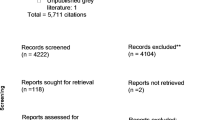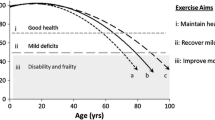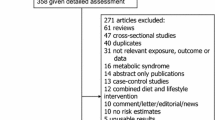Abstract
The use of walking workstations in educational and work settings has been shown to improve cognitive abilities. At the same time, it has been repeatedly shown that medical residents around the world do not meet exercise guidelines, mainly due to a scarcity of available free time. Our study investigates the boundaries of the previously observed phenomenon of improved cognitive performance with physical activity using materials that represent real life tasks. Participants had different level of expertise and involved second year psychology students, medical students, and family medicine residents. We examined the effect of being physically inactive (i.e., sitting) or active (i.e., walking) while diagnosing multiple complex presentations of four skin conditions. We assumed that being physically active, irrespective of the level of expertise, will bolster diagnostic performance. Our findings show, however, that being physically active does not change the performance level of participants with different levels of medical expertise. Implications for medical education and suggestions for further research will be discussed.
Similar content being viewed by others
References
Alderman, B. L., Olson, R. L., & Mattina, D. M. (2014). Cognitive function during low-intensity walking: A test of the treadmill workstation. Journal of Physical Activity and Health, 11(4), 752–758. https://doi.org/10.1123/jpah.2012-0097.
Chau, J. Y., Reyes-Marcelino, G., Burnett, A. C., Bauman, A. E., & Freeman, B. (2018). Hyping health effects: A news analysis of the “new smoking” and the role of sitting. British Journal of Sports Medicine, 53(16), 1039–1040. https://doi.org/10.1136/bjsports-2018-099432.
Chau, J. Y., Sukala, W., Fedel, K., Do, A., Engelen, L., Kingham, M., et al. (2016). More standing and just as productive: Effects of a sit-stand desk intervention on call center workers’ sitting, standing, and productivity at work in the opt to stand pilot study. Preventive Medicine Reports, 3, 68–74. https://doi.org/10.1016/j.pmedr.2015.12.003.
Clemes, S. A., Barber, S. E., Bingham, D. D., Ridgers, N. D., Fletcher, E., Pearson, N., et al. (2016). Reducing children’s classroom sitting time using sit-to-stand desks: Findings from pilot studies in UK and Australian primary schools. Journal of Public Health (Oxford, England), 38(3), 526–533. https://doi.org/10.1093/pubmed/fdv084.
Dippo, C. (2013). Evaluating the alternative uses test of creativity. In Proceedings of the national conference on undergraduate research (NCUR) (pp. S. 427–434). La Crosse, WI: University of Wisconsin.
Drucker, A. M., Cavalcanti, R. B., Wong, B. M., & Walsh, S. R. A. (2013). Teaching dermatology to internal medicine residents: Needs assessment survey and possible directions. Journal of Cutaneous Medicine and Surgery, 17(1), 39–45. https://doi.org/10.2310/7750.2012.12016.
Dupont, F., Léger, P.-M., Begon, M., Lecot, F., Sénécal, S., Labonté-Lemoyne, E., et al. (2019). Health and productivity at work: Which active workstation for which benefits: A systematic review. Occupational and Environmental Medicine, 76(5), 281–294. https://doi.org/10.1136/oemed-2018-105397.
Funk, R. E., Taylor, M. L., Creekmur, C. C., Ohlinger, C. M., Cox, R. H., & Berg, W. P. (2012). Effect of walking speed on typing performance using an active workstation. Perceptual and Motor Skills, 115(1), 309–318. https://doi.org/10.2466/06.23.26.PMS.115.4.309-318.
Golden, C. J., & Freshwater, S. M. (1978). Stroop color and word test.
Gupta, K., & Fan, L. (2009). Doctors: Fighting fit or couch potatoes? British Journal of Sports Medicine, 43(2), 153–154. https://doi.org/10.1136/bjsm.2008.051839.
Hinckson, E. A., Aminian, S., Ikeda, E., Stewart, T., Oliver, M., Duncan, S., et al. (2013). Acceptability of standing workstations in elementary schools: A pilot study. Preventive Medicine, 56(1), 82–85. https://doi.org/10.1016/j.ypmed.2012.10.014.
Hu, A., & Vender, R. (2018). Undergraduate dermatology education in Canada: A national survey. Journal of Cutaneous Medicine and Surgery, 22(1), 31–37. https://doi.org/10.1177/1203475417725876.
Isip, M. I. (2014). Effect of a standing body position during college students’ exam: Implications on cognitive test performance. Industrial Engineering and Management Systems, 13(2), 185–192. https://doi.org/10.7232/iems.2014.13.2.185.
Jerome, M., Janz, K. F., Baquero, B., & Carr, L. J. (2017). Introducing sit-stand desks increases classroom standing time among university students. Preventive Medicine Reports, 8, 232–237. https://doi.org/10.1016/j.pmedr.2017.10.019.
John, D., Bassett, D., Thompson, D., Fairbrother, J., & Baldwin, D. (2009). Effect of using a treadmill workstation on performance of simulated office work tasks. Journal of Physical Activity and Health, 6(5), 617–624. https://doi.org/10.1123/jpah.6.5.617.
Mitrushina, M. N. (2005). Handbook of normative data for neuropsychological assessment (2nd ed.). New York: Oxford University Press.
Norman, G. R., Rosenthal, D., Brooks, L. R., Allen, S. W., & Muzzin, L. J. (1989). The development of expertise in dermatology. Archives of Dermatology, 125(8), 1063–1068. https://doi.org/10.1001/archderm.1989.01670200039005.
Oppezzo, M., & Schwartz, D. L. (2014). Give your ideas some legs: The positive effect of walking on creative thinking. Journal of Experimental Psychology. Learning, Memory, and Cognition, 40(4), 1142–1152. https://doi.org/10.1037/a0036577.
Rees-Punia, E., Evans, E. M., Schmidt, M. D., Gay, J. L., Matthews, C. E., Gapstur, S. M., et al. (2019). Mortality risk reductions for replacing sedentary time with physical activities. American Journal of Preventive Medicine, 56(5), 736–747. https://doi.org/10.1016/j.amepre.2018.12.006.
Reshidi, A., & Saud, F. (2016). Level of physical activity of physicians among residency training program at Prince Sultan Military Medical City, Riyadh, KSA 2014. International Journal of Health Sciences, 10(1), 39–46. https://doi.org/10.12816/0031215.
Richardson, J. T. E. (2011). Eta squared and partial eta squared as measures of effect size in educational research. Educational Research Review, 6(2), 135–147. https://doi.org/10.1016/j.edurev.2010.12.001.
Rourke, L., Oberholtzer, S., Chatterley, T., & Brassard, A. (2015). Learning to detect, categorize, and identify skin lesions: A meta-analysis. JAMA Dermatology, 151(3), 293–301. https://doi.org/10.1001/jamadermatol.2014.3300.
Russell, B. A., Summers, M. J., Tranent, P. J., Palmer, M. A., Cooley, P. D., & Pedersen, S. J. (2016). A randomised control trial of the cognitive effects of working in a seated as opposed to a standing position in office workers. Ergonomics, 59(6), 737–744. https://doi.org/10.1080/00140139.2015.1094579.
Schmidt, H. G., & Boshuizen, H. P. A. (1993). On acquiring expertise in medicine. Educational Psychology Review, 5(3), 205–221. https://doi.org/10.1007/BF01323044.
Selst, M. V., Ruthruff, E., & Johnston, J. C. (1999). Can practice eliminate the psychological refractory period effect? Journal of Experimental Psychology: Human Perception and Performance, 25(5), 1268–1283. https://doi.org/10.1037/0096-1523.25.5.1268.
Straker, L., Levine, J., & Campbell, A. (2009). The effects of walking and cycling computer workstations on keyboard and mouse performance. Human Factors: The Journal of Human Factors and Ergonomics Society, 51(6), 831–844. https://doi.org/10.1177/0018720810362079.
Ulman, C. A., Binder, S. B., & Borges, N. J. (2015). Assessment of medical students’ proficiency in dermatology: Are medical students adequately prepared to diagnose and treat common dermatological conditions in the United States? Journal of Educational Evaluation for Health Professions, 12, 18. https://doi.org/10.3352/jeehp.2015.12.18.
Whitaker-Worth, D. L., Susser, W. S., & Grant-Kels, J. M. (1998). Clinical dermatologic education and the diagnostic acumen of medical students and primary care residents. International Journal of Dermatology, 37(11), 855–859. https://doi.org/10.1046/j.1365-4362.1998.00537.x.
Williams, A. S., Williams, C. D., Cronk, N. J., Kruse, R. L., Ringdahl, E. N., & Koopman, R. J. (2015). Understanding the exercise habits of residents and attending physicians: A mixed methodology study. Family Medicine, 47(2), 118–123.
Woods, N. N., Brooks, L. R., & Norman, G. R. (2007). It all makes sense: Biomedical knowledge, causal connections and memory in the novice diagnostician. Advances in Health Sciences Education, 4, 405–415. https://doi.org/10.1007/s10459-006-9055-x.
Acknowledgements
The authors would like to thank Dr. Mark MacKenzie, University of British Columbia’s Family Practice Residency Program Director, Dr. Benjamin Y. Cheung, University of British Columbia’s Department of Psychology Lecturer, and the many students from the University of British Columbia’s Northern Medical Program Class of 2020 for their creative help with recruitment of participants for this study. Thank you also to Mr. Richard Franke, research assistant, for his help with data collection, often at distant sites.
Funding
Funding for this study was provided through the University of Northern British Columbia’s Research Start-Up Fund.
Author information
Authors and Affiliations
Contributions
All authors contributed to the study conception and design. Material preparation, data collection and analysis were performed by Malgorzata E. Kaminska. The first draft of the manuscript was written by Malgorzata E. Kaminska and both authors commented on previous versions of the manuscript. Both authors read and approved the final manuscript.
Corresponding author
Ethics declarations
Conflict of interest
The authors report no declaration of interest. The authors alone are responsible for the content and writing this article.
Ethical approval
All procedures in studies involving human participants were in accordance with the ethical standards of the institutional and/or national research committee and with the 1964 Helsinki declaration and its later amendments or comparable ethical standards.
Informed consent
informed consent was obtained from all individual participants included in the study.
Additional information
Publisher's Note
Springer Nature remains neutral with regard to jurisdictional claims in published maps and institutional affiliations.
Rights and permissions
About this article
Cite this article
Kaminska, M.E., Rikers, R.M.J.P. Does walking improve diagnosis of skin conditions at varying levels of medical expertise?. Adv in Health Sci Educ 26, 405–416 (2021). https://doi.org/10.1007/s10459-020-09992-9
Received:
Accepted:
Published:
Issue Date:
DOI: https://doi.org/10.1007/s10459-020-09992-9




